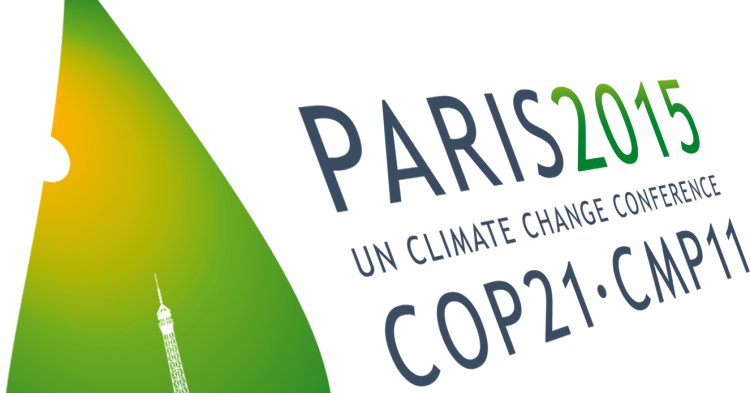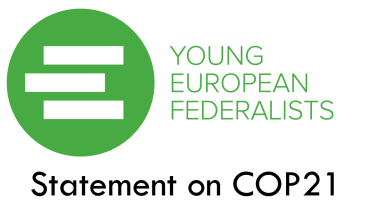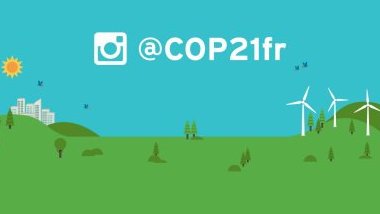Vibrant speeches and strong words
“We only have one planet”, “a turning point in history”; such is the type of rhetoric that has been heard all along Monday 30th of November in Paris for the COP21. Divided into two simultaneous sessions, all head of states and governments succeeded one another, with only three minutes allocated to them, although this time was largely unrespected. Some really inspiring introductory words were spoken by Prince Charles who literally spoke from the heart and said: “humanity faces many threats, but none is greater than climate change”. French President François Hollande opened the session, with a strong speech reconciling the struggle against terrorism and climate change and setting out conditions for a good agreement. The Presidents of Paraguay and Peru opened the long list of declarations, ended by Yemen and Vanuatu into Monday night.
Many dignitaries started with strong words thanking and supporting the host, and its people, France, in regards to the recent terrorist attacks. For many head of states, the organisation of the conference itself, despite the 13th November events, was a sign of defiance against the terrorist threat. “Through our presence here today, we show we are stronger than terrorists” declared German Chancellor Angela Merkel. For many, answering climate change was also a way to tackle the threat and progress toward peace.
Over several hours, leaders of the world stressed the importance of addressing the issue of climate change. Through their inspiring statements, they generally described all the threats we faced, such as floods, sea level rise and other effects of climate change. They stressed the utmost importance of climate change. President Hollande said “the future of the planet is at stake”. US President Obama referred to Martin Luther King, “there is such a thing as being too late”. The UK Prime Minister noted that “the earth is in peril”. Despite such warnings, the general mood seemed to be fairly optimistic, all announcing the multiple benefits that curbing climate change will have on our environment and carrying people out of poverty. Leaders used strong words emphasising the importance of the moment, and calling for decisive actions. While they all announced what their respective countries were doing to address the climate issue, they also tried to be inspiring, many saying that “all eyes are now on Paris” and that climate change is an issue for all mankind. Chinese President Xi Jinping even referred to Victor Hugo, quoting the French author: “supreme resources spring from extreme resolutions”.
All these vibrant speeches and passionate appeals for some certainly gave an encouraging mandate to the negotiators for the days that were to come. It was precisely the point of this series of statements by world leaders. However many of them limited themselves to saying we need to rise to the challenges but did not generally deliver announcements or new positions from what had been previously announced while the general attention drifted away after so many interventions.
Expected appeals by leading emitting countries
As expected the attention mostly fell on the speeches by the major leaders, such as the US’, China’s or Russia’s. President Obama as usual pronounced a strong and very encouraging speech, lasting fourteen minutes instead of the three allocated. Similarly to previous statements he had made on climate change, he appeared engaged and determined, often using the next generation and children rhetoric. If he announced what the US is doing on climate change, he probably overdid it, as the US engagement, especially in terms of INDCs, can really be strengthened. He did however recognise the need of differentiating responsibilities between developed and developing countries, which is not often heard from an American standpoint.
Chinese President Xi Jinping’s speech which was shortly after Obama’s was less encouraging and more technical, which appealed for win-win situations being found thanks to the future Paris agreement. It seems the Chinese leader still had difficulties to present China as the world’s biggest greenhouse gases emitter, and rather stayed on the side of the countries that are not primarily responsible for climate change. He clearly described what China’s efforts on climate change were, and how strong and honest they were.
Indian Prime Minister Narendra Modi was awaited as India’s climate impact grows continually. His speech emphasised the role and responsibility that falls on developed countries regarding climate change, stressing the need for developing countries such as India to be able to provide for a growing and demanding population. Inspiringly he noted that “people and planet are inseparable; human wellbeing and nature are indivisible”.
Among other expected speeches, Russian President Vladimir Putin insisted on the efforts made in his country, but did not alleviate doubts on the real action Russia takes against climate change, a country which relies on its huge forests to lower its effective emissions. Canada’s Prime Minister, Justin Trudeau used the occasion to clearly mark a change with his predecessor, notorious for a grim record on climate issues. “Canada is back” announced the newly elected leader. Another rather recent head of government in the person of Australia’s Malcolm Turnbull unfortunately did not seem to change the country’s position on climate. He announced that Australia will ratify the second commitment period of the Kyoto protocol, running until 2020, in a time when much more is expected from heavy polluting countries on a per capita basis.
In contrast to these not too new positions, the call for radical change and for urgent action came from many countries that are not often in the spotlights of international affairs.
An urgent appeal from the small and most vulnerable countries
Monday’s succession of speeches was the occasion for many to hear from leaders of small nations that are mostly unknown to Europeans in diplomacy. These small nations are often the most vulnerable countries, in particular when it comes to Small Islands States such as the Marshall Islands, Tuvalu and Palau. They all called for support to help them face the consequences of climate change, up to asking for a loss and damages mechanism.
Christopher J. Loeak, President of the Marshall Islands who added colourful local clothing to his suit, made a strong plea, saying “Everything I know and everyone I love is in the hands of all of us gathered today”. Micronesia’s president, Peter M. Christian, produced a very touching speech, partly improvised as he noted during his appearance, saying he scratched up all his notes. His speech featured some remarks such as: “we know that there is danger in the air”, “global emergency”, “the world is in peril” saying by 2030 some pacific communities might not be there anymore.
Many states from Latin America, often members of the same ALBA alliance, produced a strong call to developed economies to change their economic paradigm, encouraging them to seek sustainability instead of endless economic growth. Ecuador’s President Rafael Delgado made an opposition between controlling temperature rise and economic growth and recalled that his country created in its constitution legally enforceable rights for nature. Evo Morales, the President of Bolivia called for an increased respect of nature and the environment, speaking of “responsibility before mother earth”.
The EU, looking for a binding agreement
The European Union was represented by all its Member States but also by the European Commission’s President Jean-Claude Juncker who could present a unified European position, whereas certain Member States such as Poland may have different views on the issue. European leaders stuck to the need for a binding agreement, as recalled by Chancellor Merkel or Spanish leader Mariano Rajoy. Many of them announced in brief speeches what their country is doing on climate and for emissions, such as Denmark aiding vulnerable countries or Italy producing 8% of energy from solar power. David Cameron gave a rather peculiar speech which he turned into a dialogue between a grandfather and his grandchildren on looking back on how and why reaching an agreement hypothetically failed.
All in all, seldom before have so many head of states come together to share similar values on the same subject and call for similar actions. If we take what was said on this day then it seemed we could arrive swiftly to a solution against climate change. However this has not been the case until now and therefore after many good words, actions are expected.



Follow the comments: |
|
